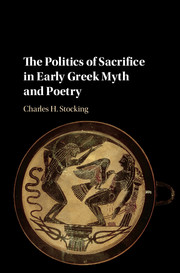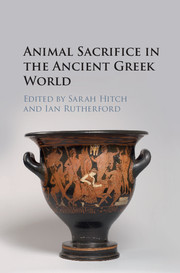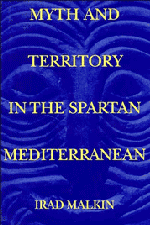The Politics of Sacrifice in Early Greek Myth and Poetry
This book offers a new interpretation of ancient Greek sacrifice from a cultural poetic perspective. Through close readings of the Theogony, the Homeric Hymn to Demeter, the Homeric Hymn to Hermes, and the Odyssey in conjunction with evidence from material culture, it demonstrates how sacrifice narratives in early Greek hexameter poetry are intimately connected to a mythic-poetic discourse referred to as the 'politics of the belly'. This mythic-poetic discourse presents sacrifice as a site of symbolic conflict between the male stomach and female womb for both mortals and immortals. Ultimately, the book argues that the ritual of sacrifice operates as a cultural mechanism for the perpetuation of patriarchal ideology not just in early Greek hexameter, but throughout Greek cultural history.
- Offers a major new interpretation of the mythology of sacrifice, employing a focus on oral poetics
- Demonstrates how intertextuality may work through multiple works of Greek hexameter poetry
- Makes use of recent work in anthropology and archaeology in order to offer a new interpretation of sacrifice
Product details
April 2017Hardback
9781107164260
208 pages
235 × 160 × 17 mm
0.43kg
3 b/w illus. 2 tables
Available
Table of Contents
- Introduction: the paradox of sacrifice and the politics of feasting
- 1. Anger and honorary shares: the Promethean division revisited
- 2. Sacrifice, succession, and the politics of patriarchy
- 3. The desire of a God: semiotic sacrifice and patriarchal identity in the Homeric Hymn to Hermes
- 4. Cities where men sacrifice: Odysseus returns to the fatherland
- Conclusion: sacrificial narrative and the politics of the belly.





